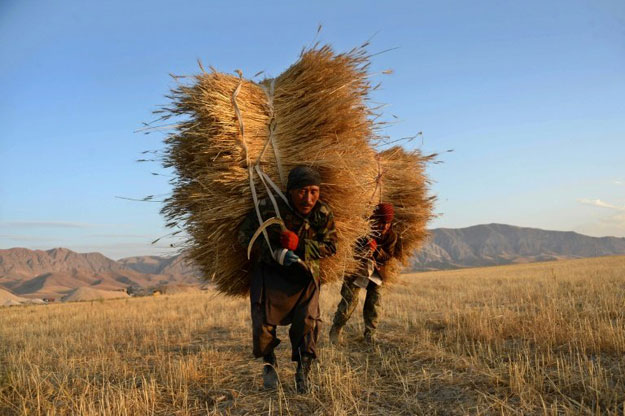
The Food and Agriculture Organization (FAO) said the prices of almost all commodities measured in its Food Price Index dropped, including milk, vegetable oils, sugar and cereals.
Read: World Bank: World food prices jumped 10 per cent in July
"Ample supplies, a slump in energy prices and concerns over China's economic slowdown all contributed to the sharpest fall of the FAO Food Price Index in almost seven years," it said in a statement.
The index averaged 155.7 points in August, down 5.2 per cent from July, "the steepest monthly drop since December 2008, with virtually all major food commodities registering marked dips", it said.
The index is now at its lowest since June 2010, the FAO said.
In contrast, meat prices remained virtually unchanged from July, although overall they are still down 18 percent from the peak of August 2014.
The UN agency is forecasting increased production of cereal, coarse grains, wheat and rice for 2015, which is likely to further push down prices.
Low commodity prices have a direct effect on farmers, shrinking margins and raising ire in an industry that has also been hit by China's struggling economy and a Russian food embargo.
September has seen thousands of farmers atop hundreds of tractors take to the streets in protest outside the European Union headquarters in Brussels and in Paris.
A combination of factors, including changing dietary habits, slowing Chinese demand and a Russian embargo on Western products in response to sanctions over the Ukraine conflict, has pushed down prices for beef, pork and milk.
On September 7, Belgian police fired tear gas and water cannon at some 7,000 European farmers who lobbed hay and fireworks as they demanded EU intervention against the plunge in prices.
The EU executive, the European Commission, said it would release 500 million euros ($557 million) in emergency funds to help ease the pressure on farmers.
In August, the Commission extended for a year until July 2016 safety net measures for European fruit and vegetable farmers to ease the burden caused by the Russian embargo.
Russia slapped an embargo on most Western food imports in retaliation for EU and US sanctions on Moscow over the crisis in Ukraine, where the Kremlin is accused of aiding pro-Russian rebels fighting Kiev government troops in the east.
Read: May 2015: Food items the cause as inflation inches up to 3.2%
Farming associations say the EU agri-food sector accounts for 40 million jobs and exports more than 120 billion euros worth of produce every year.
On September 3, France also saw angry farmers blocking the streets of Paris with more than 1,500 tractors to protest against the plunging food prices that, along with soaring costs and increasing taxes, they saying are killing their livelihoods.
The protest was the culmination of months of anger that has seen farmers block key cities, dump manure and rotting vegetables in the streets and in one case send pigs running through supermarket aisles.



1732626034-0/BeFunky-collage-(92)1732626034-0-165x106.webp)


1732618327-2/Untitled-design-(7)1732618327-2-270x192.webp)










COMMENTS
Comments are moderated and generally will be posted if they are on-topic and not abusive.
For more information, please see our Comments FAQ